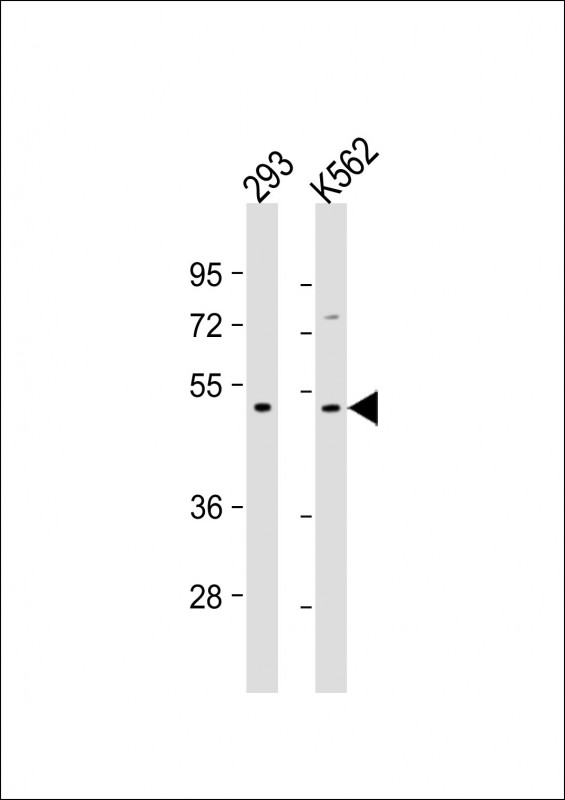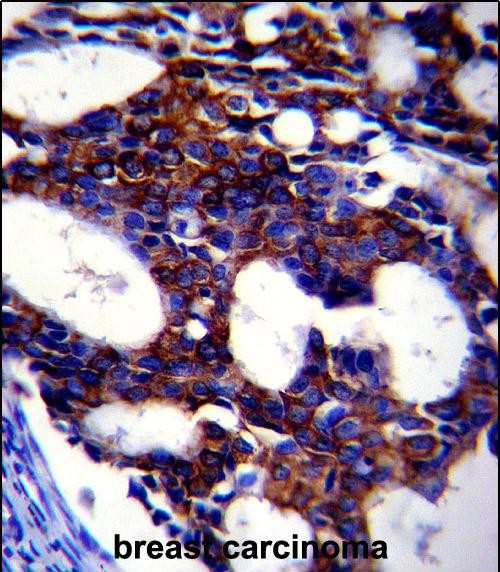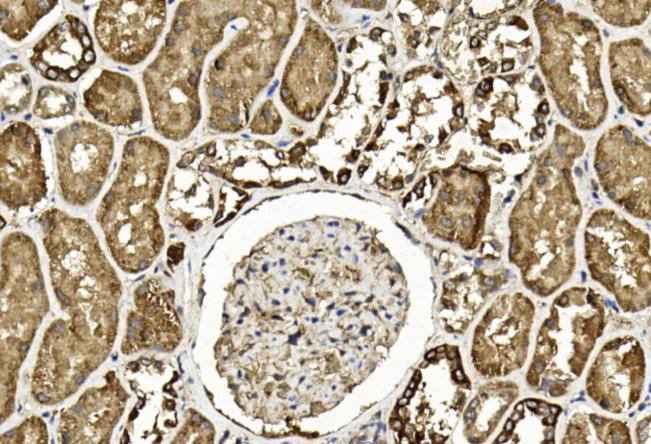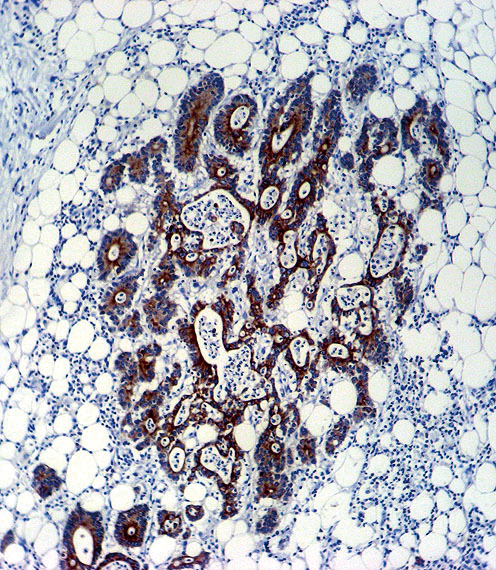




| WB | 1/500-1/1000 | Human,Mouse,Rat |
| IF | 咨询技术 | Human,Mouse,Rat |
| IHC | 1/100-1/500 | Human,Mouse,Rat |
| ICC | 1/10-1/50 | Human,Mouse,Rat |
| FCM | 咨询技术 | Human,Mouse,Rat |
| Elisa | 咨询技术 | Human,Mouse,Rat |
| Aliases | Transforming growth factor beta-2, TGF-beta-2, BSC-1 cell growth inhibitor, Cetermin, Glioblastoma-derived T-cell suppressor factor, G-TSF, Polyergin, Latency-associated peptide, LAP, TGFB2 |
| Entrez GeneID | 7042 |
| WB Predicted band size | 47.7kDa |
| Host/Isotype | Mouse IgG1 |
| Antibody Type | Primary antibody |
| Storage | Store at 4°C short term. Aliquot and store at -20°C long term. Avoid freeze/thaw cycles. |
| Species Reactivity | Human |
| Immunogen | This TGFB2 monoclonal antibody is generated from mouse immunized with TGFB2 recombinant protein. |
| Formulation | Purified antibody in TBS with 0.05% sodium azide. |
+ +
以下是3篇关于TGFB2抗体的参考文献及其摘要内容概览:
---
1. **文献名称**: "Targeting TGFB2 signaling with a novel antibody inhibits tumor progression in preclinical models"
**作者**: Smith, J.R. et al.
**摘要**: 研究开发了一种靶向TGFB2的单克隆抗体,验证其在抑制肿瘤微环境中TGF-β2介导的免疫抑制和转移的作用,通过小鼠模型显示该抗体可减少肿瘤生长并增强化疗效果。
---
2. **文献名称**: "TGFB2-specific neutralizing antibody attenuates fibrosis in a murine model of systemic sclerosis"
**作者**: Li, Y. et al.
**摘要**: 实验证明抗TGFB2抗体通过阻断TGF-β2/Smad信号通路,显著减轻小鼠系统性硬化模型中的皮肤和肺纤维化,提示其治疗纤维化疾病的潜力。
---
3. **文献名称**: "Differential expression of TGFB isoforms in human cancers: Validation of TGFB2 antibody for immunohistochemistry"
**作者**: Garcia, R. & Patel, S.
**摘要**: 研究验证了一种商业化TGFB2抗体的特异性,通过免疫组化分析多种癌症组织,发现TGFB2在乳腺癌和胶质瘤中高表达,并与患者预后相关。
---
如需具体文献链接或补充信息,可进一步提供研究方向(如应用领域/实验方法)。
TGFB2 antibodies target transforming growth factor-beta 2 (TGF-β2), a secreted multifunctional cytokine belonging to the TGF-β superfamily. TGF-β2 regulates diverse cellular processes, including proliferation, differentiation, apoptosis, and immune response, primarily through SMAD-dependent signaling pathways. It plays critical roles in embryonic development, tissue homeostasis, wound healing, and fibrosis, but its dysregulation is implicated in pathologies such as cancer, fibrosis, autoimmune disorders, and cardiovascular diseases. Unlike TGF-β1 and TGF-β3. TGF-β2 exhibits unique expression patterns and context-dependent functions, often associated with extracellular matrix remodeling and immune modulation.
TGFB2 antibodies are essential tools for detecting and quantifying TGF-β2 expression in research and diagnostics. They enable investigations into its spatial distribution, activation status, and interactions with receptors (e.g., TGFBR1/2) or latency-associated proteins. Common applications include Western blotting, immunohistochemistry, ELISA, and flow cytometry. In therapeutic contexts, neutralizing TGFB2 antibodies are explored for inhibiting excessive TGF-β2 activity in fibrotic diseases or tumor microenvironments. However, challenges remain in ensuring isoform specificity due to high homology among TGF-β family members. Validated TGFB2 antibodies are crucial for elucidating its distinct biological roles and developing targeted therapies.
×